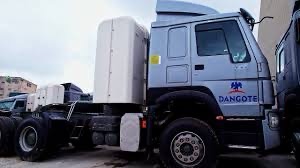After weeks of delays, the Dangote Refinery is finally set to begin direct fuel distribution across Nigeria, a move expected to save the country over ₦1.7 trillion every year.
The refinery had earlier announced plans to deploy 4,000 CNG-powered trucks to deliver fuel directly to filling stations nationwide. The initiative aims to cut out middlemen, reduce transportation costs, and ensure a steady supply of petroleum products across the country. It also promised to focus first on the South-West region before expanding to other parts of Nigeria.
The company confirmed that 1,000 CNG-powered trucks have arrived at its Lekki plant in Lagos. These trucks will start delivering fuel to Lagos, Ogun, and other South-West states from this week.
According to the refinery, another 3,000 trucks will arrive by the end of September. This will enable nationwide distribution, reducing dependence on third-party suppliers and cutting down transportation costs.
The Dangote Group revealed that it invested over ₦720 billion in purchasing 4,000 CNG trucks for the project. The plan, it said, is designed to lower fuel distribution costs and benefit over 42 million micro, small, and medium enterprises (MSMEs) in Nigeria.
“By reducing the cost of transporting fuel across the country, we are helping businesses operate more efficiently and boosting economic growth,” the company stated.
Industry experts believe this move will transform Nigeria’s oil and gas sector, especially as the refinery’s production has increased to 610,000 barrels per day.
However, the plan has raised concerns among tanker drivers and logistics operators, who fear job losses. The Natural Oil and Gas Suppliers Association of Nigeria (NOGASA) has called for dialogue to address these concerns before the distribution fully expands nationwide.
Despite these concerns, many see the refinery’s distribution strategy as a major step towards stabilizing fuel supply and reducing costs for Nigerians.


